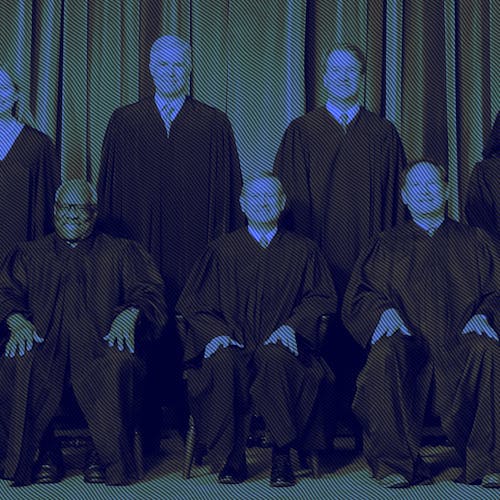MAENNER: Current Republicans' disregard of deficit shows hypocrisy

As the 2008 recession was in full force under former President George W. Bush, Republicans scrambled to do anything in their power to reverse the deleterious effects of the market crash on the U.S. economy. To their credit, Republicans broke with party orthodoxy in order to stimulate the economy, deciding to cast away their concerns with deficit spending and government intervention in the market in order to adopt Keynesian policies meant to manufacture demand and get more money spent back into the economy.
Yet, beginning with the inauguration of former President Barack Obama, Republicans were seemingly no longer interested in stimulating the market, citing newfound concerns with creating large deficits as a bigger existential worry than the massive amounts of Americans who found themselves out of work. Curiously enough, this hardline stance against adding to the national debt was nowhere to be found under the Bush administration, where the 43rd president oversaw massive increases in discretionary spending stemming from economic uneasiness and the foreign wars in the Middle East. In addition, former Vice President Dick Cheney also said early on in Bush’s first term that “Reagan proved deficits don’t matter,” yet Republicans were blind to this point of view during Obama’s time in office.
Now as we fast forward to today, the same Republican Party that held the government hostage and threatened to cause it to default on its debt under Obama has not only passed a two-year government spending package that will cost upward of $500 billion, but also passed a sweeping tax cut bill just a couple months ago that is slated to add more than $1 trillion to the national debt over the course of the next decade.
While many Republican lawmakers have spoken out about the importance of the government spending bill and tax cuts in providing stability and support for the working class, this behavior still signifies a marked shift from the Republican deficit hawks who have held up spending increases under Democratic regimes. But, one Republican who is not in favor of the deficit increases under the Trump administration is libertarian Sen. Rand Paul (R-Ky.), who has denounced his fellow Republicans as being hypocritical and “complicit in the deficits.”
Even so, Republicans, such as Speaker of the House of Representatives Paul Ryan (R-Wis.), have touted the positives of their accomplishments, especially when it comes to the impact of the new tax cut legislation on working families. They have said that: "Take home pay is going up, wages are going up, benefits are going up, businesses are expanding.” Yet, while Republicans have tried to mold their rhetoric surrounding the tax cuts around giving a boost to the lower and middle class, the actual language of the bill lends it more to being a handout to the wealthy than some sort of stimulus to the needy.
Take, for instance, the fact that in order to pass the law through both chambers of Congress while abiding by Senate rules, the Republicans were forced to choose between putting an expiration date on either the corporate or the individual tax cuts. While one would think a bill meant for the people would make this an easy choice for those at the bottom rungs of the economic ladder, Republicans decided otherwise. They choose to make the tax breaks for businesses permanent, while slapping an expiration date on the ones for families that reads “2026,” which also just so happens to be a midterm election year, signaling that conservatives plan on using the expiration of the tax cuts for working people as political leverage against the Democrats.
Most concerning for working families, though, is the blame to which Republicans levy for the proliferation of the national debt. Ryan has made it known that he faults entitlement programs for blowing up the national debt, completely disregarding the steps his own party has taken since former President Ronald Reagan's administration that have resulted in that very same outcome. Contrary to popular belief within conservative circles, it is estimated by the Center on Budget and Policy Priorities that more than 90 percent of the benefit dollars that entitlement and other mandatory programs spend go to assist people who are elderly, seriously disabled or members of working households. But, while the tendency of Republicans to disregard deficits while in power is certainly a brazen example of their hypocrisy, I find it more hypocritical that conservatives would pass off their tax cut legislation as a victory for the working class when the government programs working Americans rely on are next in the crosshairs to be cut.
Hunter Maenner is a School of Arts and Sciences junior majoring in criminal justice and political science. His column, "Maenner's Musings," runs on alternate Mondays.
*Columns, cartoons and letters do not necessarily reflect the views of the Targum Publishing Company or its staff.
YOUR VOICE | The Daily Targum welcomes submissions from all readers. Due to space limitations in our print newspaper, letters to the editor must not exceed 500 words. Guest columns and commentaries must be between 700 and 850 words. All authors must include their name, phone number, class year and college affiliation or department to be considered for publication. Please submit via email to [email protected] by 4 p.m. to be considered for the following day’s publication. Columns, cartoons and letters do not necessarily reflect the views of the Targum Publishing Company or its staff.



